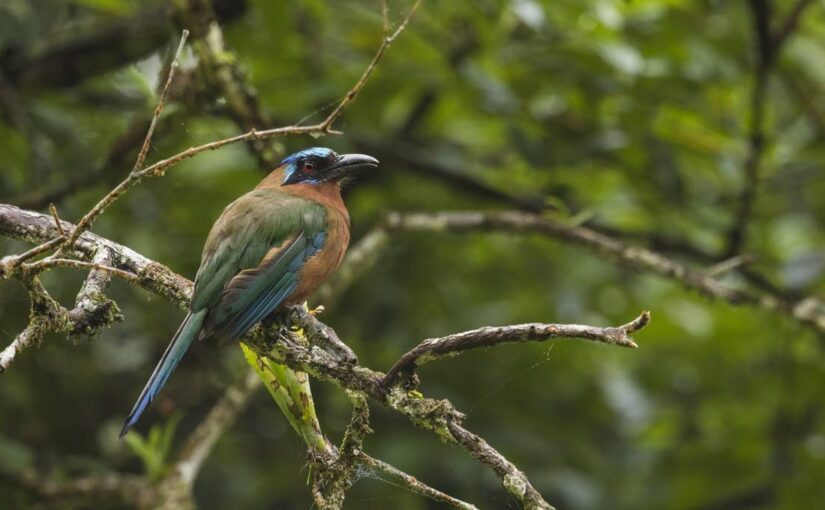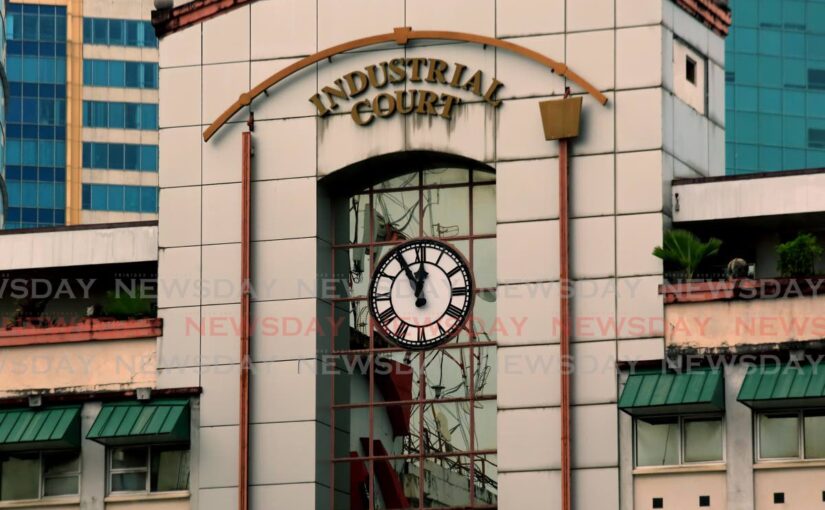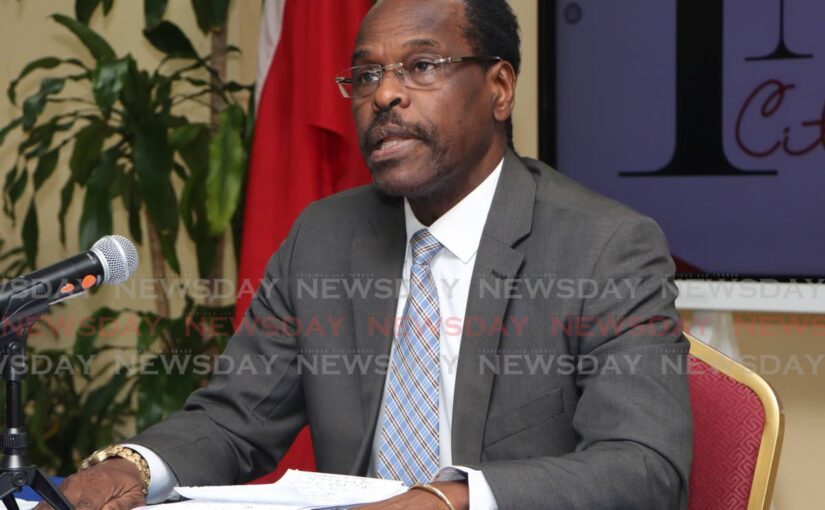A new underwater Nazca Ridge mountain, taller than Mount Olympus in Greece, has been discovered and is home to at least 20 previously unknown sea life...
Vous n'êtes pas connecté
- English
- Français
- عربي
- Español
- Deutsch
- Português
- русский язык
- Català
- Italiano
- Nederlands, Vlaams
- Norsk
- فارسی
- বাংলা
- اردو
- Azərbaycan dili
- Bahasa Indonesia
- Հայերեն
- Ελληνικά
- Bosanski jezik
- українська мова
- Íslenska
- Türkmen, Түркмен
- Türkçe
- Shqip
- Eesti keel
- magyar
- Қазақ тілі
- Kalaallisut ; kalaallit oqaasii
- Lietuvių kalba
- Latviešu valoda
- македонски јазик
- Монгол
- Bahasa Melayu ; بهاس ملايو
- ဗမာစာ
- Slovenščina
- тоҷикӣ ; toğikī ; تاجیکی
- ไทย
- O'zbek ; Ўзбек ; أۇزبېك
- Tiếng Việt
- ភាសាខ្មែរ
- རྫོང་ཁ
- Soomaaliga ; af Soomaali
Rubriques :
 Maroc - NEWSDAY.CO.TT - A la Une - 07/Aug 04:26
Maroc - NEWSDAY.CO.TT - A la Une - 07/Aug 04:26
Protecting the deep seabed
Dr Gabrielle Jamela Hosein SCIENTISTS continue to make unexpected discoveries in the ocean, including on the ocean floor. For example, in the past two weeks the global press has been covering the publication of findings of “dark oxygen” in the Pacific Ocean. This is oxygen produced in complete darkness about 4,000 metres below the ocean surface, without plants that use sunlight for photosynthesis. This is a major step in scientific knowledge about nature and evolution. More important for the current moment, this discovery has thrown the International Seabed Authority (ISA) under an even closer microscope. If the seabed can change the future of science, and offer huge new insights about life itself – including thousands of new species and geological formations still being discovered and understood – should we approve deep-sea corporate mining for minerals like cobalt, nickel, copper and manganese? Having seen how mining corporations have poisoned rivers all over the world and decimated ecosystems for shareholder profits (ask Guyana’s Indigenous peoples about mercury poisoning from gold mining, ask Jamaicans about the red mud tailings ponds from bauxite mining), do we trust them with the most pristine depths of our oceans? Given the extent to which corporations have repeatedly suppressed or debunked science, bribed and bought governments, and failed clean-ups, we should be very sceptical of their PR. Marine scientists and mining engineers overwhelming agree that mining would be dangerous, reckless and irreversible for the seabed and the life it supports. The nodules (basically rocks) with minerals on the sea floor cannot be collected without destroying all the life on them, an estimated 30-40 per cent of Clarion-Clipperton Zone (CCZ) species in the Pacific Ocean. However, marine species outside of the mining zone will be at risk of decimation from the process of expelling unused sand, like a sandstorm occurring at multiple depths, thick with metal shrapnel. As I’ve written in my column of January 18, 2023, the fight between mining corporations and…well…the world is taking place in Kingston, Jamaica where the ISA is located. It is in the process of developing international mining regulations over a vast area of ocean floor. The ISA is a questionable body with the institutional authority to approve seabed ecocide. As John Oliver pointed out in an excellent episode a month ago (check it out), the ISA has never refused an exploratory licence. Note, exploratory mining to test the effect of deep seabed mining has effects from which, even over decades, the sea floor does not recover. At best, the ISA has been accused of lack of transparency, developing non-binding and non-specific mining standards behind closed doors and an indefensible rush, prompted by The Metals Company and the island of Nauru, to support mining of the seabed. The ISA has committed itself to managing a transition to exploitation even if science is saying it could be catastrophic. Earlier this year, Greenpeace reported that the ISA released a consolidated text of the draft mining regulations which contained verbatim inclusion of proposals by The Metals Company and Blue Minerals Jamaica Ltd which were in direct opposition to states’ positions and were not visibly marked as “new text,” and words like “rare or fragile” (as in ecosystems) were removed with no trace or track changes. Indeed, Greenpeace’s report, "Deep Trouble: The Murky World of the Deep Sea Mining Industry," should be required reading. It highlights that metal companies, some states and the ISA should not be trusted. Activists protest because they do not trust states to protect the interests of either ordinary people today or future generations tomorrow. States also think in terms of borders whereas oceanographers, environmentalists and scientists think in terms of the planet or biodiversity or the commons. Thirty-two nations and a handful of corporations are expressing concern, but key to social change is ordinary people everywhere forming a tidal wave of demands on all governments and a protective human wall of solidarity around our oceans. Regionally, we are being led by our Jamaican sistren and bredren who just last week were continuing calls for a moratorium on deep-sea mining. Look up the video "Jamaica Says No to Deep Sea Mining" by Esther Figueroa. Speaking about their ongoing activism and successful prevention of mining approvals, Dahvia Hylton, president of the Jamaica Climate Change Youth Council (JCCYC), promised, “We will continue to protest. We have, for the past two years, been outside the ISA meeting at each session, and they’ll see us again next March, to ensure the voice of the people is heard on this issue.” Diary of a mothering worker Entry 537 motheringworker@gmail.com The post Protecting the deep seabed appeared first on Trinidad and Tobago Newsday.
Articles similaires
Brawner happy about US’ help in West Philippine Sea ops but ‘we’ll depend on ourselves first’
BAGUIO CITY, Philippines — Washington’s offer of assistance for the rotation and resupply mission of Manila in the West Philippine Sea is welcome,...
The Horn Of Africa States: The War Narrative – OpEd
The current brand of talks and narrative in the region remains to be that of war. Is that a new phenomenon or is this just a continuation of the...
Thousands Of Jellyfish Clones Are Multiplying In B.C. Lakes
An invasive, freshwater jellyfish is popping up in B.C. waters in the thousands and future sightings could increase rapidly, according to UBC...
Is Climate Change Sucking The Caspian Sea Dry? – Analysis
By Tarique Niazi Azerbaijan is making the most of its hosting of the UN climate summit (COP29) in November this year. Its president, Ilham Aliyev,...
Is Climate Change Sucking The Caspian Sea Dry? – Analysis
By Tarique Niazi Azerbaijan is making the most of its hosting of the UN climate summit (COP29) in November this year. Its president, Ilham Aliyev,...
Technofascism: The Government Pressured Tech Companies To Censor Users – OpEd
Mark Zuckerberg, the CEO of Meta, has finally admitted what we knew all along:Facebook conspired with the government to censor individualsexpressing...
The National Park Effect
Faraaz Abdool discusses how national parks and other protected areas bring benefit to people and communities. PARKS, reserves or sanctuaries are...
One from ten leaves nought
My first feeling of dismay and personal loss, in reference to a political event, was the break-up of the West Indies Federation. I felt it...
Hinds: 14 months till Coast Guard boats in operation
National Security Minister Fitzgerald Hinds has said in the next 14 months, all the Coast Guard’s eight larger vessels will be back in...
Les derniers communiqués
-
Aucun élément




